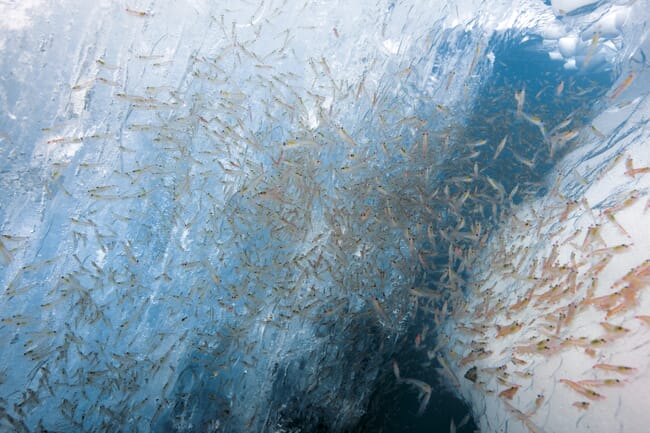The classification means that the fishery, which is operated by Norwegian company Aker Biomarine, is – in the words of the Sustainable Fisheries Partnership (SFP) - in “very good condition.”

According to the organisation’s latest report on reduction fisheries – those fisheries devoted to the production of fishmeal and fish oil – only three percent of the total catch volume achieves this classification. As in the four previous editions of this report, this corresponds to a single fishery: Aker's Antarctic Southern Ocean krill.
“With a growing population, it has never been more important to make healthy food and nutrients available while also keeping our planet’s ecosystem healthy,” said Matts Johansen, CEO of Aker BioMarine. “70 percent of the planet is covered by oceans, but only 2 percent of the food consumption and 0.5 percent of FDA approved pharmaceuticals comes from the oceans. As a unique and diverse system, the ocean plays a critical role in the world’s future. And with a recent global shift away from meat, we are helping to save the footprint from food production on land.”
The SFP 2019 reduction fisheries report looked at 26 reduction fishery stocks worldwide and showed that 88 percent of the catch comes from fisheries that are “reasonably well-managed.” It also identified an increase of 2 percent in the volume of fish from fisheries that are considered “poorly managed.” For the full SFP report, read here.
“The important work of SFP leaves no doubt that we need a new kind of leadership at sea. We know that we need to harvest the oceans more. But we need to do so in a much more sustainable way,” said Runa Haug Khoury, sustainability director at Aker BioMarine.
“Creating long-term worth and success in global fishery requires a business approach that values both opportunity but also the responsibility of harvesting of natural resources. At Aker BioMarine, we are proud of the SFP ‘A’ rating and will continue our efforts to inspire other fisheries worldwide.”



